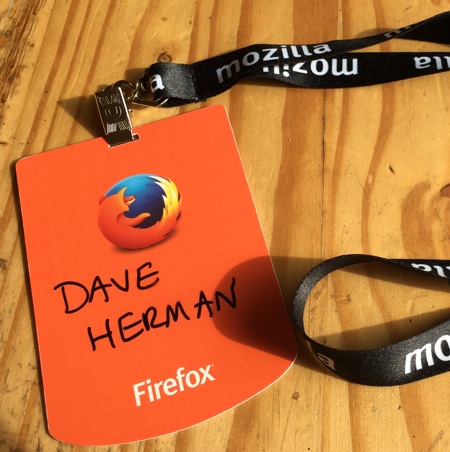Why Mozlandia Was So Effective
 When Chris Beard first announced that over a thousand Mozilla staff and contributors would be descending on Portland this month for an all-hands work week, I worried about two things. I knew a couple of the groups in my department would be approaching deadlines. And I was afraid that so many groups of people in one place would be chaotic and hard to coordinate. I wasn’t even wrong – but it didn’t matter.
When Chris Beard first announced that over a thousand Mozilla staff and contributors would be descending on Portland this month for an all-hands work week, I worried about two things. I knew a couple of the groups in my department would be approaching deadlines. And I was afraid that so many groups of people in one place would be chaotic and hard to coordinate. I wasn’t even wrong – but it didn’t matter.
The level of focus and effectiveness last week was remarkable. For Mozilla Research’s part, we coordinated with multiple groups, planned 2015 projects, worked through controversial technical decisions, removed obstacles, brought new contributors on board, and even managed to get a bunch of project work done all at the same time.
There were a few things that made last week a success:
Articulating the vision: Leaders have to continually retell their people’s story. This isn’t just about morale, although that’s important. It’s about onboarding new folks, reminding old-timers of the big picture, getting people to re-evaluate their projects against the vision, and providing a group with the vocabulary to help them articulate it themselves.
While Portland was primarily a work week, it’s always a good thing for leadership to grab the opportunity to articulate the vision. This is something that Mitchell Baker has always been especially good at doing, particularly in connecting our work back to Mozilla’s mission; but Chris and others also did a good job of framing our work around building amazing products.
Loosely structured proximity: The majority of the work days were spent without excessive organization, leaving broad groups of people in close proximity but with the freedom to seek out the specific contact they needed. Managers were able to set aside quieter space for the groups of people that needed to get more heads down work done, but large groups (for example, most of Platform) were close enough together that you could find people for impromptu conversations, whether on purpose or – just as important! – by accident.
Cross-team coordination: Remote teams are the life blood of Mozilla. We have a lot of techniques for making remote teams effective. But it can be harder to coordinate across teams, because they don’t have the same pre-existing relationships, or as many opportunities for face-to-face interaction. Last week, Mozilla Research got a bunch of opportunities to build new relationships with other teams and have higher-bandwidth conversations about tricky coordination topics.
I hope we do this kind of event again. There’s nontrivial overhead, and a proper cadence to these things, but every once in a while, getting everyone together pays off.